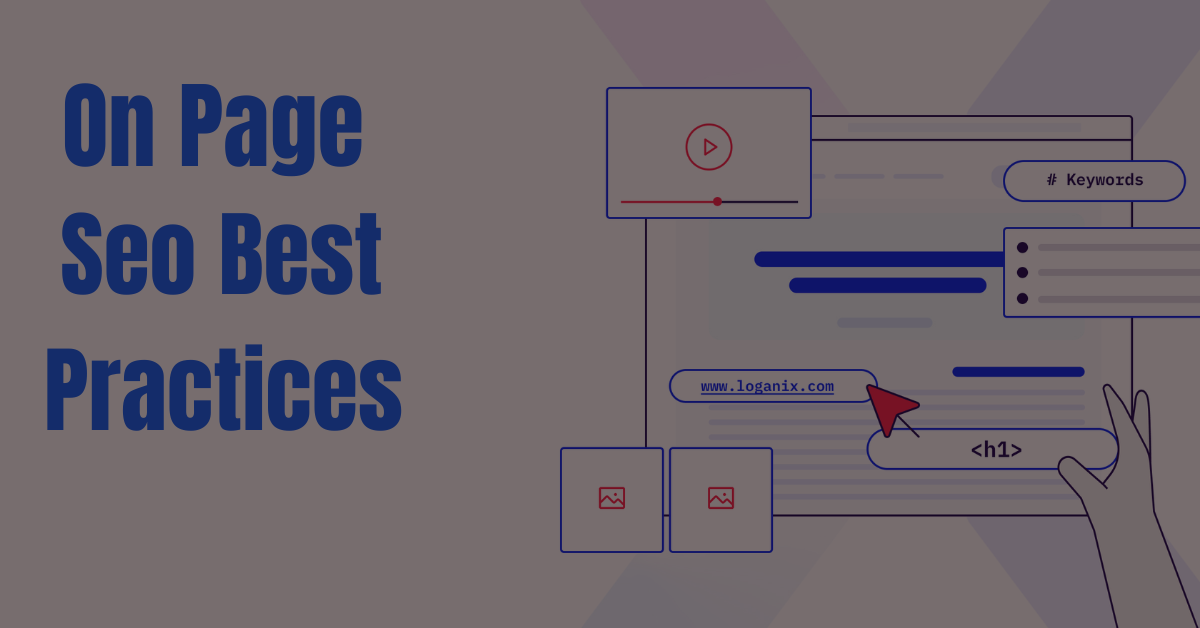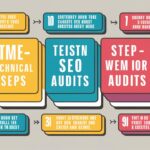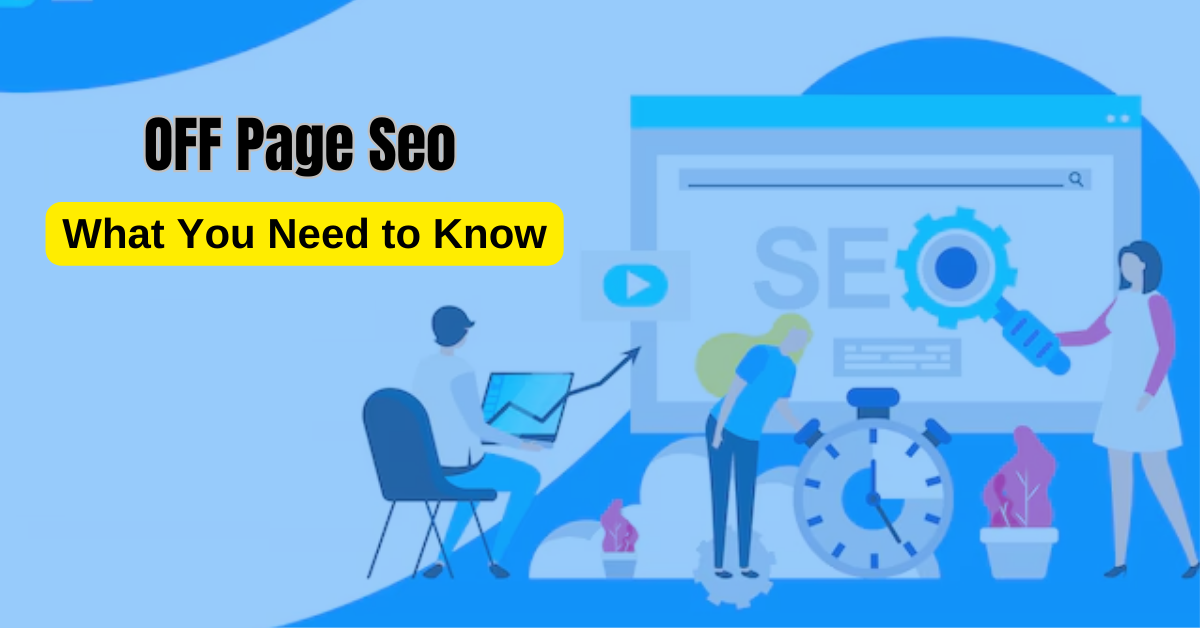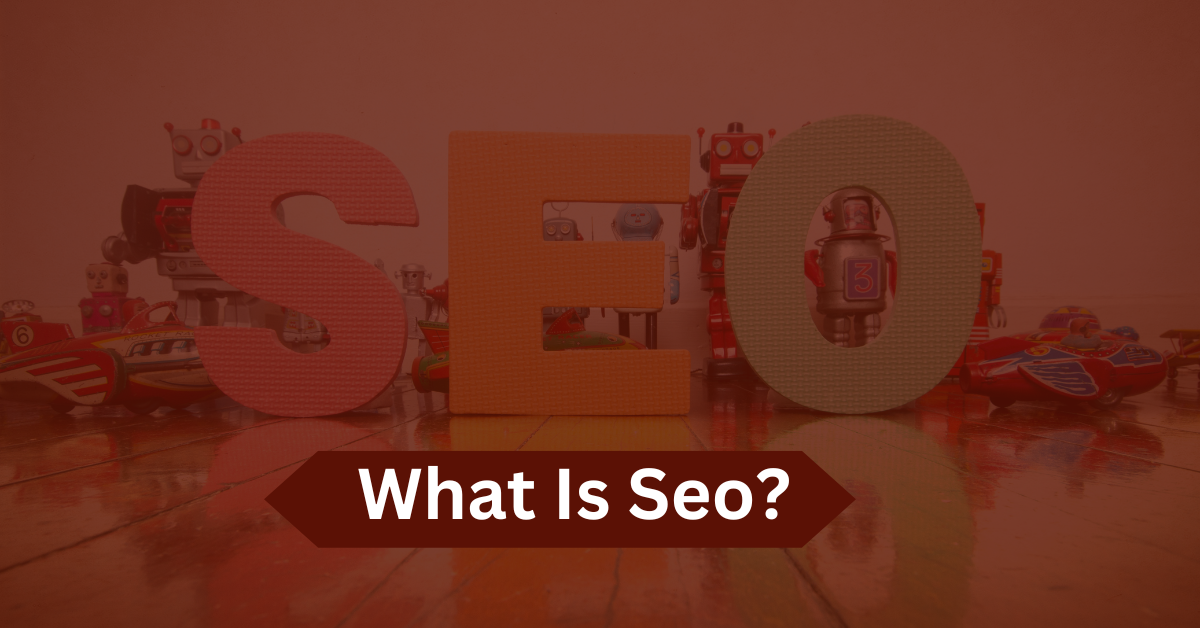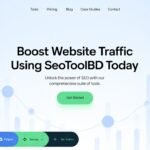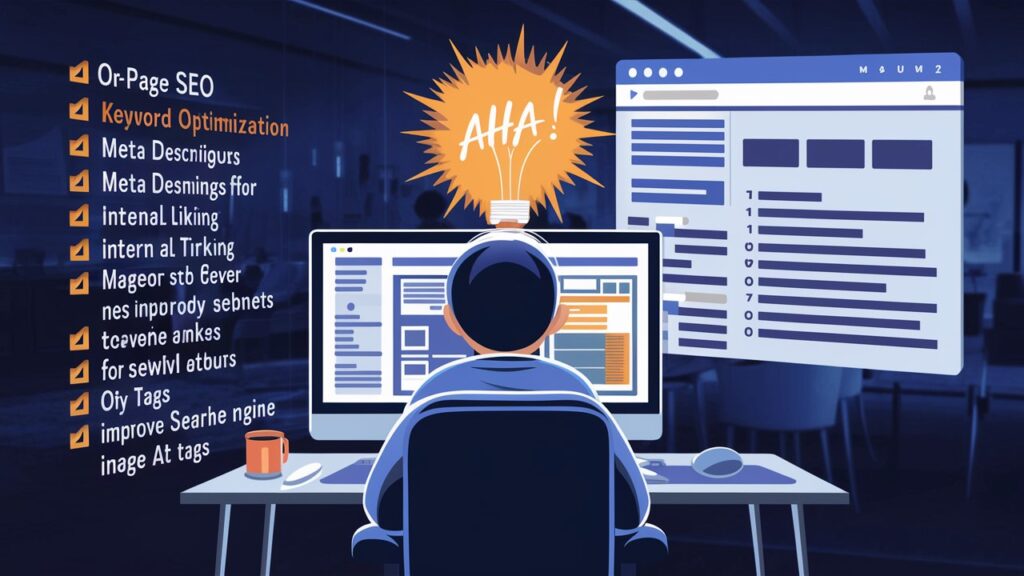
Did you realize that the ability to master on-page seo methods could be the key to transforming your website requires for improved ranking and more organic traffic? Imagine being able to boost your visibility on the search engines and entice more customers easily. No matter if you’re just beginning to learn about the field of SEO or an experienced professional optimizing your website’s on-page elements is an essential move towards digital success.
With the help of intelligent on-page SEO strategies. You can improve various elements such as meta descriptions, title tags headers, URLs and many more, making sure that your website stands out the ever-changing world that is digital advertising. How do you get started? In this comprehensive book, we will guide you through the tactics that, tricks. The best practices to maximize your content.
The Beginner’s Guide to on Page Seo Best Practices
Explore the benefits of careful keyword research, the significance to user experiences, effects of internal linking, as well as the secrets to producing quality, high-quality content that is keyword-rich. Let’s explore the realm of on-page SEO and discover the potential to take your site to higher levels in the search engine rankings.
This blog will dive into the intricacies of optimizing your SEO on the web offering practical advice and tips to help you create solid foundations for your online presence. Would you like to step up you SEO game and make use of the potential of optimization on the page? Let’s get started to increase your visibility on the internet and generating tangible outcomes.
Mastering On-Page seo: Strategies for Higher Rankings
In order to improve the search engine ranking of your site understanding SEO on-page is crucial. By enhancing various on-page elements will significantly improve the visibility of your website in search results. In this article we will look at the most effective strategies. methods to assist you in achieving better rankings by optimizing your on-page elements.
Understanding On-Page SEO Essentials
On-page SEO is the process of optimizing individual web pages to be more prominent and draw higher organic search traffic. It includes a wide range of elements that affect the visibility of a website and its relevance to search engine results. By focusing on SEO on-page it can improve your user experience, enhance the effectiveness of your keywords, and show your skills to search engines.
Crafting Exceptional Content
Engaging, high-quality content is an essential element of SEO on-page. It is not just satisfying the user’s intention but also catches the interest of the algorithms that are used to rank search results. By providing helpful. useful information, you will establish yourself as an authoritative source in your region and increase your chances of being ranked higher.
Click-Worthy Meta Title Tags
Making sure that meta titles are optimized is vital to attract visitors to search engine result pages. Making compelling, keyword-rich titles can encourage users to visit your site. It’s crucial to find a balance between readability and optimization and ensure you’re able to accurately represent your information on your site while appealing to search engines.
Meta Descriptions: Your Secret Weapon on SERPs
Meta descriptions play a crucial part in attracting clicks from search results webpages (SERPs). Through writing concise and compelling Meta descriptions you could give a glimpse of the contents of your website and entice users to click through and go to your website.
Elevate Your Page Content
Optimizing the various elements on your page like headings, subheaders and formatting can greatly improve your SEO’s performance. Utilizing the right formatting and headings techniques not only enhances readability, it aids search engines in understanding the structure and significance the content.
Keep in mind that on-page SEO is only a small part of an overall optimization strategy. Through implementing these strategies and methods will help you lay the foundation for better ranking and more organic traffic. Be sure to check back for the following segments, in which we’ll explore each key element of SEO on-page providing more information and strategies to boost the performance of your website.
Understanding On-Page SEO Essentials
SEO on the web plays a significant part in determining your site’s position and visibility on search engine result webpages (SERPs). By enhancing various elements on your page it can dramatically increase your website’s chance of being more prominent on search engine results. This is increasing organic traffic and attracting prospective customers.
The Importance of On-Page SEO
On-page SEO concentrates on optimizing meta tags as well as headers, URLs along with other aspects directly to your website pages. The optimization informs search engines about the quality . Relevancy of your content, assisting them to understand what your page’s content is about. If search engines are able to comprehend the content you provide. It is more probable that they will rank your site higher for relevant search terms.
Impact on Search Engine Rankings
Effective on-page SEO practices will positively impact the search engine ranking of your website. Implementing the best practices, like thorough keyword research, targeted keywords, and a thorough optimization of content, can boost the visibility of your site and increase the chances of being prominently ranked within search result pages.
User Experience and Relevance
On-page SEO additionally focuses on providing a pleasant user experience. A well-structured and optimized content, well-designed headers and attractive design enhance the user-friendliness and readability of your website pages. In providing an easy experience for your users, you boost the likelihood of keeping visitors on your site and reducing bounce rates and increasing conversions.
Keep in mind that the on-page SEO is the primary element of any effective SEO strategy. It is crucial to grasp the intricacies of online optimization, and be up to date on the ever-changing web of online marketing. If you can master the fundamentals of SEO on-page it is possible to get more prominent rankings and boost the overall visibility of your site.
(Please take note this: the word count is only the content of the section, it does not contain the H2 header nor subheaders.)
Unlock the 12 Core Components of On-Page seo
On-page SEO is an essential element in enhancing your website’s get a higher rank on Google and other search engines. By focussing on the 12 key aspects of SEO on your page, you will improve the visibility of your site and attract more organic visitors. Let’s examine these elements in detail:
1. Making exceptional quality content that is relevant and that is able to meet the requirements of the users is essential to an effective SEO on-page. Try to write complete, well-written and useful content that can keep your viewers entertained.
2. The importance of meta title tags that are click-worthy. Meta titles that have been optimized can are a major influence on the rate of click-throughs for the pages that appear in search results. Make sure that you use appealing. Keyword-rich titles in order to catch the attention of search engines.
3. Meta Descriptions Your secret weapon on SERPs Meta descriptions are a brief descriptions. The information that appear beneath meta title tags that show up on the SERPs. Write compelling and descriptive meta descriptions that attract users to come to your website.
The Beginner’s Guide to on Page Seo Best Practices
4. Improve Your Page Content. Optimize your different elements of your page. Including headers, subheaders, and the layout of your content to make it visually attractive and easy to understand.
5. strategic headings as well as engaging content formatting heading tags in the right way (H1 H2 and H2 and H2. ). Formatting techniques like bullets and lists can be used to produce more coherent content and improve the accessibility the content.
6. Improve Your SEO Performance by Using powerful images as well as Multimedia Optimizing images using alt text. Reducing the size of files and placing them in a planned manner will improve the efficiency of your website’s SEO.
7. How to go about creating SEO-friendly URLs: Create SEO-friendly URLs that are both short and informative. They should also include relevant keywords that can improve user experience as well as improve the search engine’s ranking.
8. Exploring SEO’s Potential with internal links Internal linking is an excellent method of improving the efficiency of your website’s navigation. Establishes a hierarchy that allows users to understand the importance of your web pages.
Top 10 Important On Page SEO Factors You Need to Know In 2024
9. External Links: Linking beyond Your Website: Building links with authoritative websites will increase the credibility of your website and authority.
10. Enhancing Your Website’s Performance The Crucial Rolle of Page Speed Optimizing.The speed of your website’s loading is vital to ensure a positive user. Experience as well as improved ranking on search engines.
11. Achieving the Mobile Revolution: Optimizing for Every Screen In the current era of increasing use of mobile devices optimizing your site for mobile-responsiveness is essential. You must ensure that you experience a an effortless and smooth experience across every device.
12. Optimizing SEO on-page with dynamic Comments User-generated content, like comments, could bring value to your site and boost search engine ranking.
If you master these 12 key aspects of on-page SEO to optimize your site’s performance and get higher ranking in search results.
Unlocking SEO Potential via Internal Links
Internal linking is a successful technique for improving the navigation on websites. as well as increasing the visibility of search engines. By strategically linking your website pages, you can show the relevance. The structure of your website’s content to search engine crawlers. This is how internal hyperlinks can assist you in maximizing the SEO capabilities of your website:
1. Improved Website Navigation
The internal links on your website are an effective way of directing users to other pages on your site. By linking pages that are similar to each other. They help visitors find more relevant content and seamlessly navigate between various sections. This enhances the user experience and allows customers to stay longer on your site. This increases engagement and bounce rates.
2. Enhancing Search Engine Visibility
Internal links provide search engines with valuable information on the layout and structure of your site. When crawlers from search engines go to your site they’ll use these internal links to locate or index your pages. The more accessible your sites via external links the greater chance they have of being found and displayed on the search results pages.
3. Establishing Relevance and Authority
Internal links can help search engines to understand the connections between the pages of your website. If you include anchor text that contains keywords within internal links. You are in a position to highlight how important the webpage linked to both users and search engines. This can increase the trust and popularity of the pages you link to which will increase the chances that they will rank high in search results.
4. Distributing Link Authority
Internal links could also be able to spread PageRank or the authority of a link across your website. When a site with significant authority links to a site within the same website. It transfers the power of that page to the website it is connected to. This can increase the rankings of pages that are organically less visible on your site, ensuring that each page has the chance of being noticed and being ranked through search engines.
5. Keyword Optimization Opportunities
Through the internal link, you’re in a position to improve the quality that you anchor employing relevant keywords. This signals search engines about the subject and subjects of the linked pages. It is crucial to use an easy and natural approach for internal linking. Avoid over-saturating or using too precise anchor text.
Final Thoughts
I’m hoping I’ve provided enough tools to disarm people. Who spread the myth that on-page SEO is merely an attempt to add a few additional keywords to pages.
This post will be revised as I develop new techniques for on-page SEO to improve the ranking of websites in search engines. If you feel I’ve have missed an important element of this checklist of on-page SEO , please feel free to share your thoughts in the comment section.
What is on page seo?
On page seo …

I have been in the SEO industry for more than 9 years, with skills and attitude that are geared towards improving the online presence of your website on search engines such as Google and Bing. Currently, I am Margaret Dalton digital working as a Lead Analyst in a Fortune 50 company, and at the same time, I was working as a successful SEO Freelancer to help websites of any sizes to get on top of the search engines.
